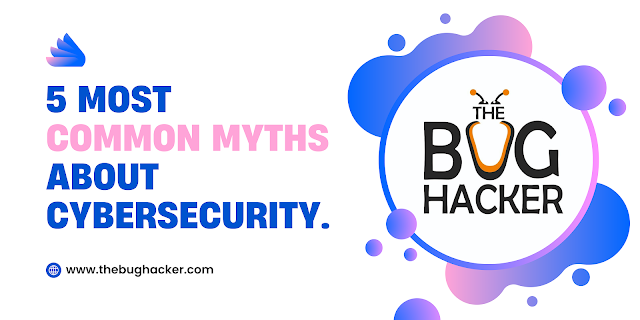Hi Everyone,
As we all know crimes are evolving rapidly as technology is growing. Here cybersecurity is playing a pivotal role in safeguarding an individual and an organization from growing cyber attacks. But in our surroundings, there are many myths present due to this it can lead to misconceptions and vulnerabilities.
Exploring and understanding this myth is very important to prevent ourselves, empowering individuals and businesses to adopt effective practices.
Here are the 5 most common myths and practices.
- "Firewalls and antivirus software guarantee 100% protection."
Firewalls and antivirus are important parts of cybersecurity but they will not help you from the cyber attacks. It will not protect you or your organization from all types of attacks, especially from social engineering or human error. Firewalls and antivirus software have limitations. They will not catch the new evolving bugs or viruses.
To protect yourself from cyber-attacks you should regularly update your software, use strong and unique passwords, and implement multiple layers of authentication. - "Software testing can prevent cyber-attacks."
The purpose of software testing is to identify the bugs, vulnerabilities, and other issues that can be used by attackers to exploit. I am also a software tester but I know we can't not cover the whole scenario to prevent the attacks. This process can overcome cyberattacks but not 100%.
To prevent the attacks it will require multi-layer protection and an approach that goes beyond testing. - "Encrypt sensitive data will avoid breaches."
Encrypting sensitive data like IDs, passwords, etc will add another layer to cyber security attacks. But it will not provide the complete protection from the attack. As we know there are many tools available to decrypt the data and alone encryption doesn't provide protection from the breaches.
To protect sensitive data, it's essential to implement the multi-layer approach mentioned below:
A. Comprehensive encryption
B. Access control
C. Secure key management
D. Regular audits and monitoring
E. Incident response plan
F. Regular software update
G. Data backups - "Cloud provides data safety."
Could service providers invest heavily in security measures like access control, firewalls, regular audits, etc to prevent the attacks. The responsibility of data sharing is between the service provider and the user. Misconfiguration of user error or weak access management can lead to a cyber attack.
Adopting best practices like encryption access management and regular security assessment can help the security benefit. - "Incognito mode makes me completely anonymous online."
'Incognito mode makes me completely anonymous online' is a misconception statement. Incognito mode provides you the privacy features from the browsing history and does not get stored in local storage. The website you visit, your internet service provider can still track your activities.
What incognito mode does:
a. Prevent from the browsing history.
b. Prevent from the site cookies and data.
c. Doesn't save the form data information you filled.
d. Prevent the cached file.
What incognito mode doesn't do:
a. Not prevent IP address and network activity.
b. Completely anonymous.
c. Protection against malware.
d. Security on public networks.

